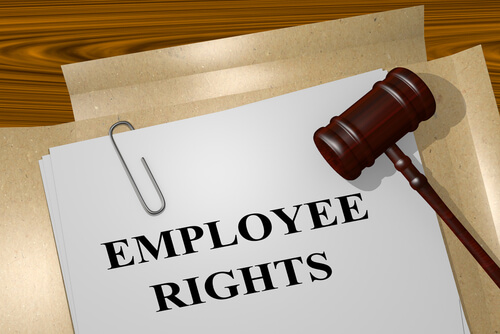Everybody has a right to a safe workplace environment. Serious injuries one might sustain on the job often entitle them to file a claim and get access to workers’ compensation. Workers’ compensation is a way to reimburse you for the damages you acquired on the job.
It is crucial that you understand what your benefits are as a worker and what you can do to recover from an injury. Unfortunately, many people do not understand how this process works. Here is everything you need to know about your legal rights following injury.
Your Legal Rights if You Got Injured at Work
Following a workplace injury, workers generally have an array of rights and utilities at their disposal. These rights may include filing claims, receiving medical care, and financial compensation to name a few.
If you have been seriously injured due to negligence or other reasons, you may have a right to file a claim against your employer or a third party. In this case, a third party may be someone who is not employing you but is still responsible for your injuries, such as a machine operator or driver.
Before you do anything, there are certain things you must do immediately to minimize pain and receive compensation.
What to Do if I Get Injured
If you face a serious injury on the job, you must immediately report it to your employer. This step is absolutely necessary. Likewise, seek medical attention for your injury.
Certain regions require that workers let their employers know of the injury within a specific window of time, or they may deny you compensation.
Under Minnesota law, workers have 30 days to report their injury to their employer. If you wait longer than 30 days, you may have to prove that your failure to submit an injury notice was due to ignorance of the law, fraud, misrepresentation, or a mistake within 180 days.
Beyond 180 days, if you did not report the injury to your employer, you may not receive any workers’ compensation.
Employee Rights

You have a set of rights. Always keep up to date with the latest legal code because workers’ compensation laws get updated constantly.
Medical Benefits
You have an unalienable right to pursue medical treatment. Employers must legally furnish psychological, chiropractic, surgical, hospital, podiatric, and medical treatment. This rule covers things like crutches, dentures, and hearing aids. It also covers reasonable travel costs.
If a worker experiences permanent total disability following a workplace injury, one of their rights includes payment for the “reasonable value of nursing services” by a family member.
You also have the right to take time off to recover from your injury. Your employer has no legal right to force you back to work before you have had time to heal.
Financial Benefits
Workers have a right to receive wage-loss benefits resulting from an injury or impairment that puts them out of work for three or more days. You may also receive compensation for partial, permanent, and total disability.
All employers must legally purchase workers’ compensation insurance for their employees. Your employer has no legal right to dissuade or intimidate you from receiving compensation. It is illegal for your employer to attempt to prevent you from getting benefits.
Your insurers are bound by law to handle your case in the fairest way possible. They are not in the right to offer low-ball settlements or exploit your vulnerable financial situation, for instance.
Right to File a Claim
All workers have a right to legal representation in the context that they sustain a workplace injury. Likewise, they have the right to file a civil suit in the case of a crime against an employer or a third-party actor.
Claims are tools to undermine negligence and abuse. Your employer can do nothing to stop you from reporting your injury and submitting a legal claim.
What Does Workers’ Compensation Not Cover?
These benefits do not cover specific incidents. These include things like
- Injuries resulting from a serious crime – If a worker is committing a serious crime on the job and sustains an injury from it, they will not receive compensation.
- Injuries from outside the workplace – Sustaining an injury while driving to work or walking home from work, for example, are not things that workers’ compensation will cover.

Get a Free Case Evaluation Now
Knowing your legal rights as a worker is important. If you feel you’ve been a victim of negligence at work, you may be able to claim compensation for your injury. You’ll only have 30 days to report your injury to your employer under Minnesota law, so do it as soon as you can to get access to workers’ compensation.
Get a free case evaluation with Mottaz & Sisk Injury Law. We are here to provide you with the legal assistance you need. Please do not hesitate to contact us today.



